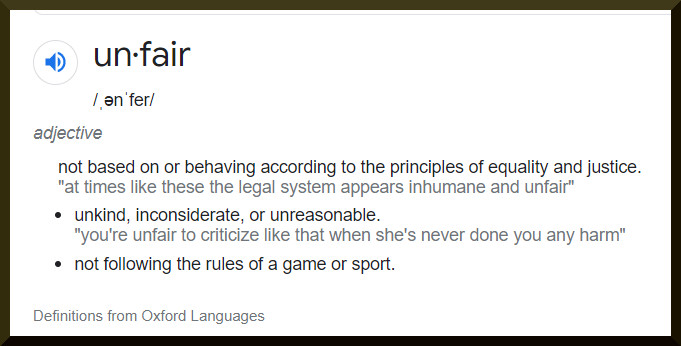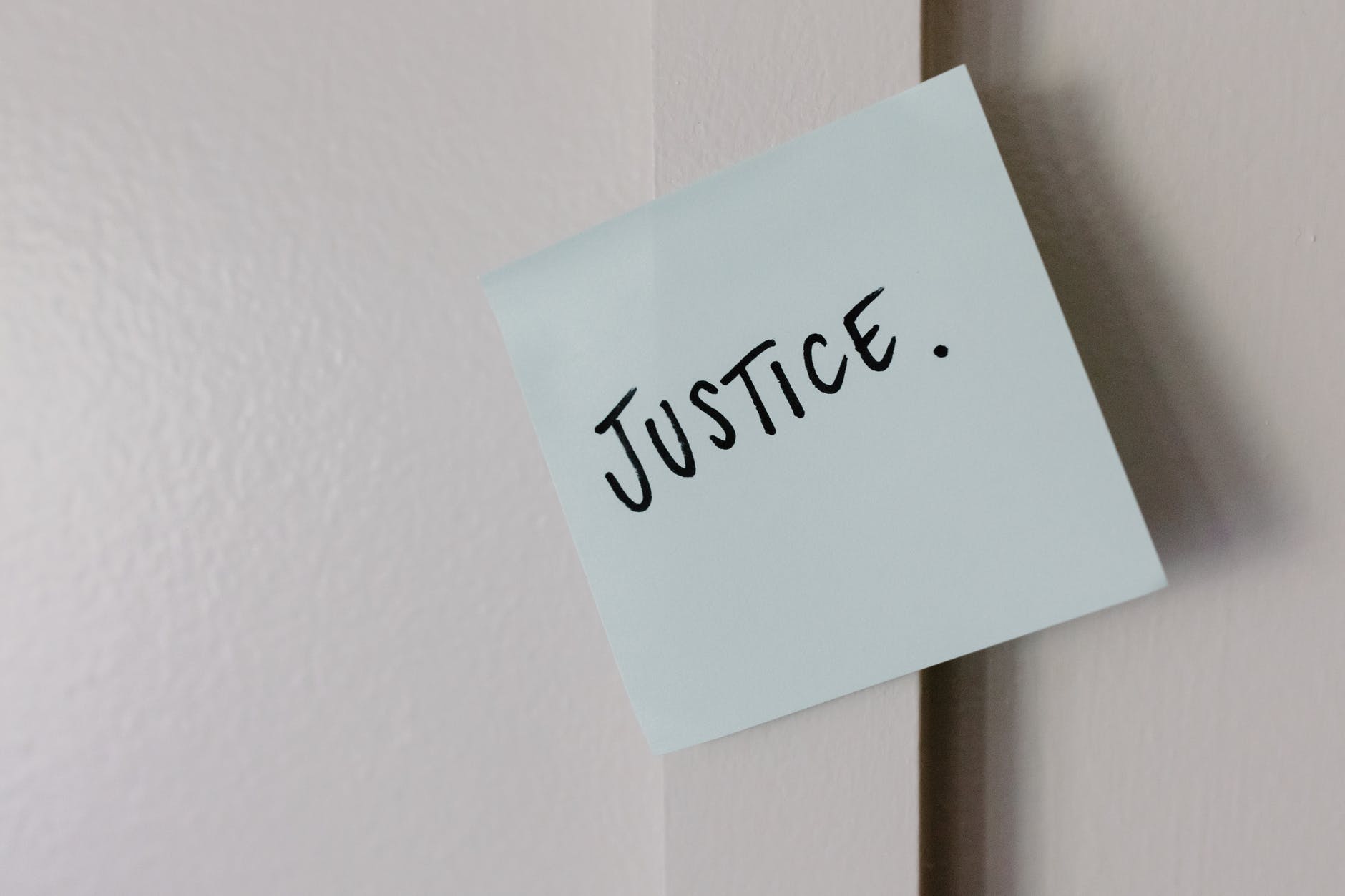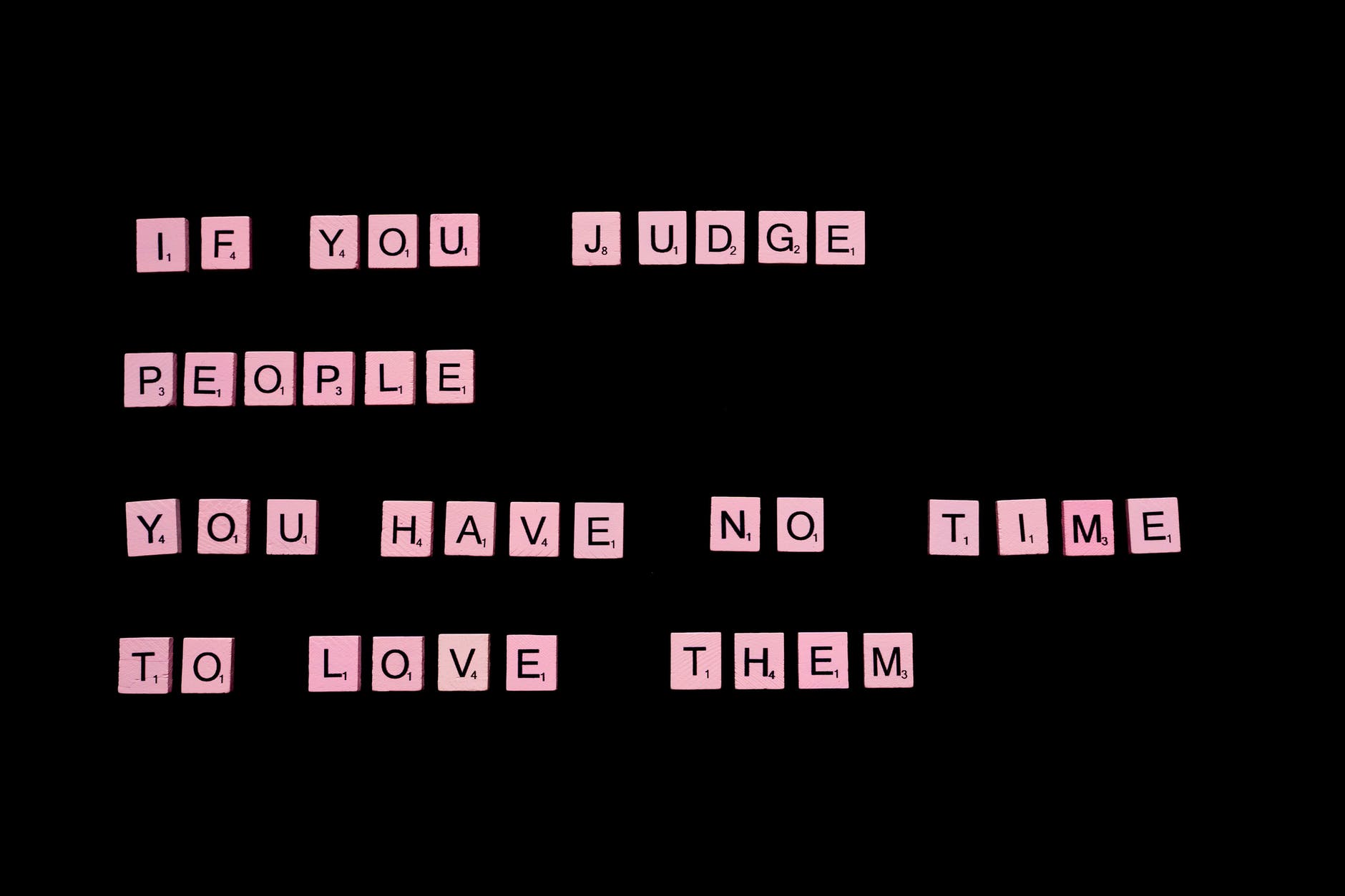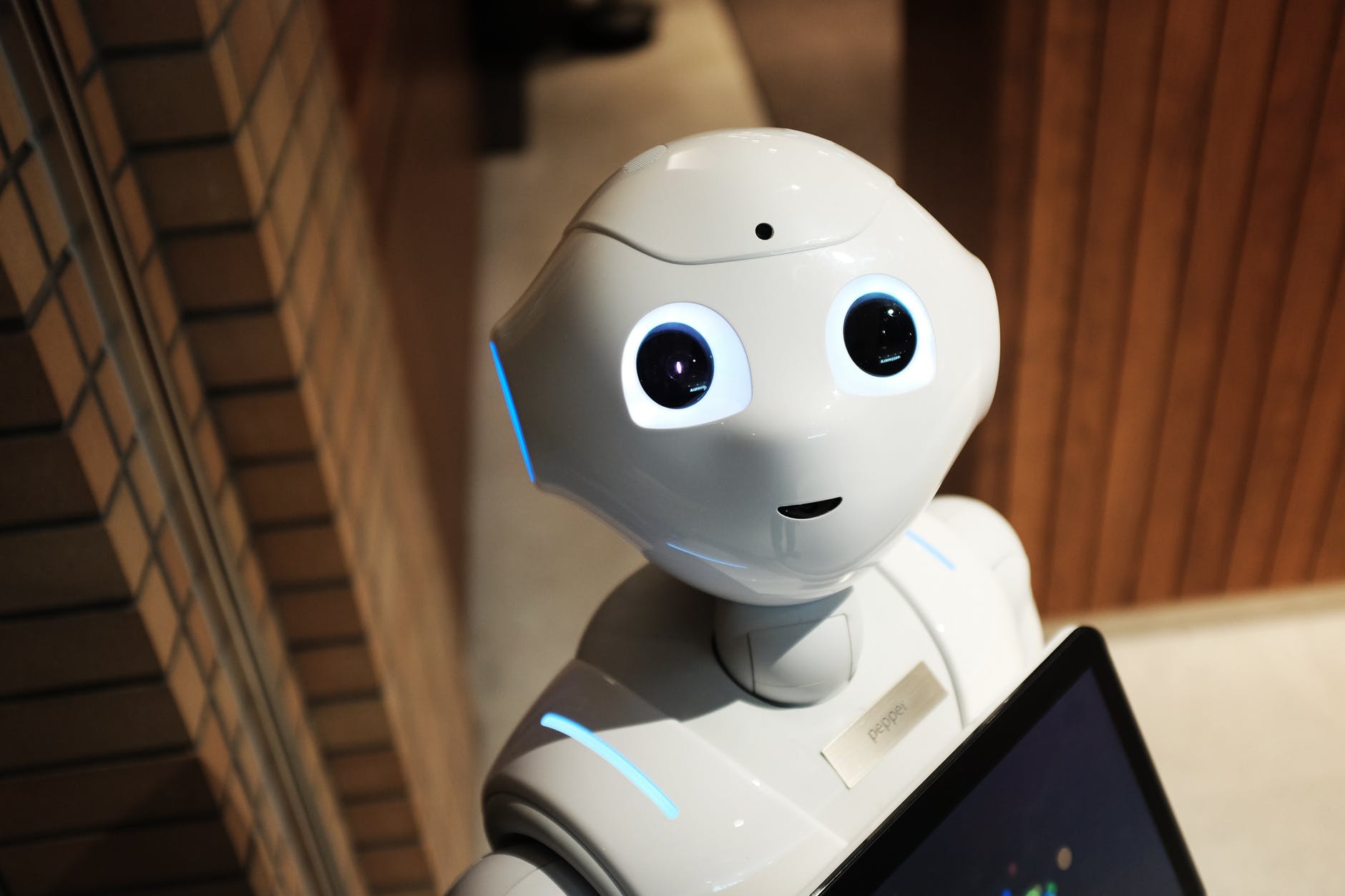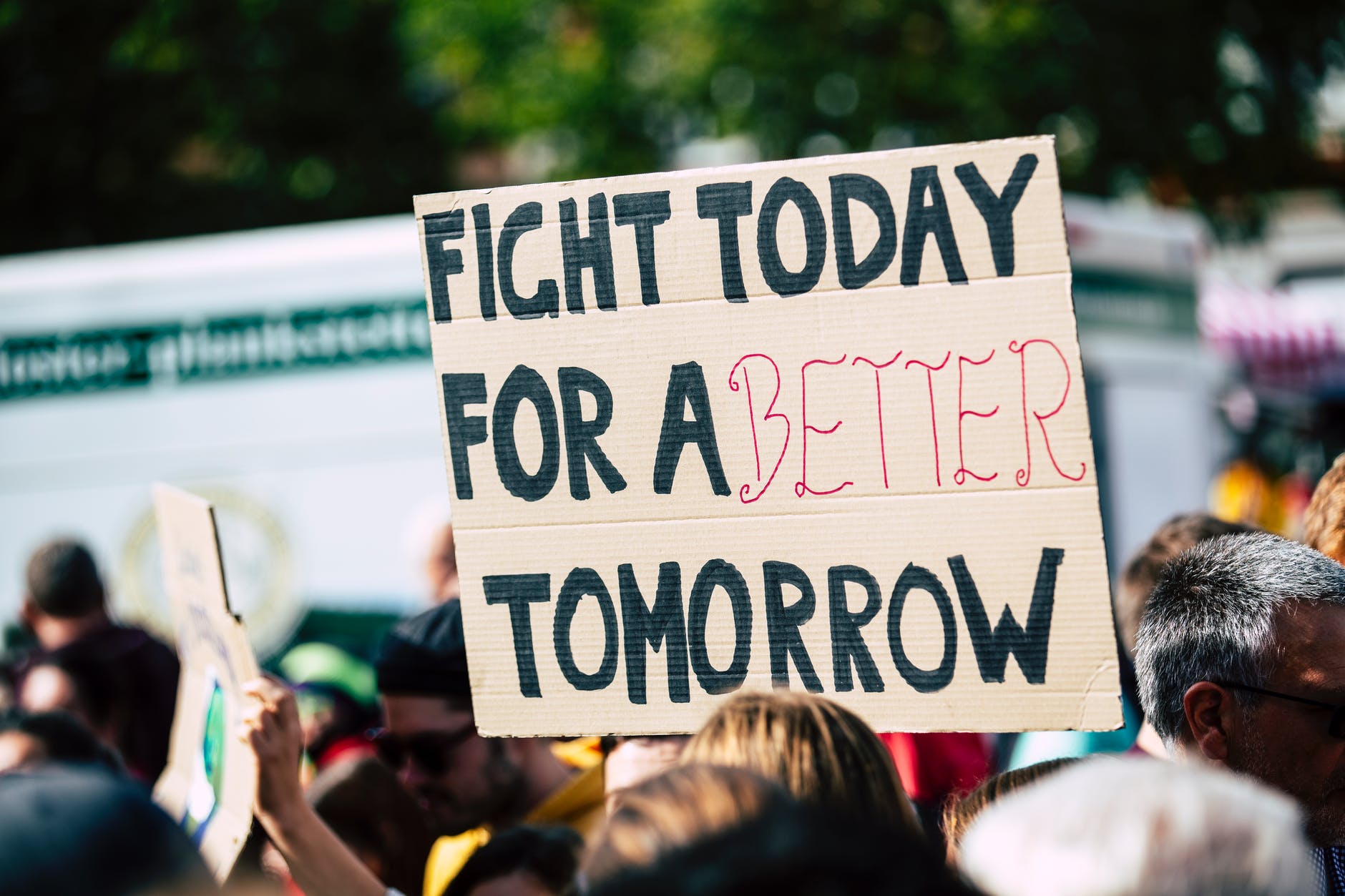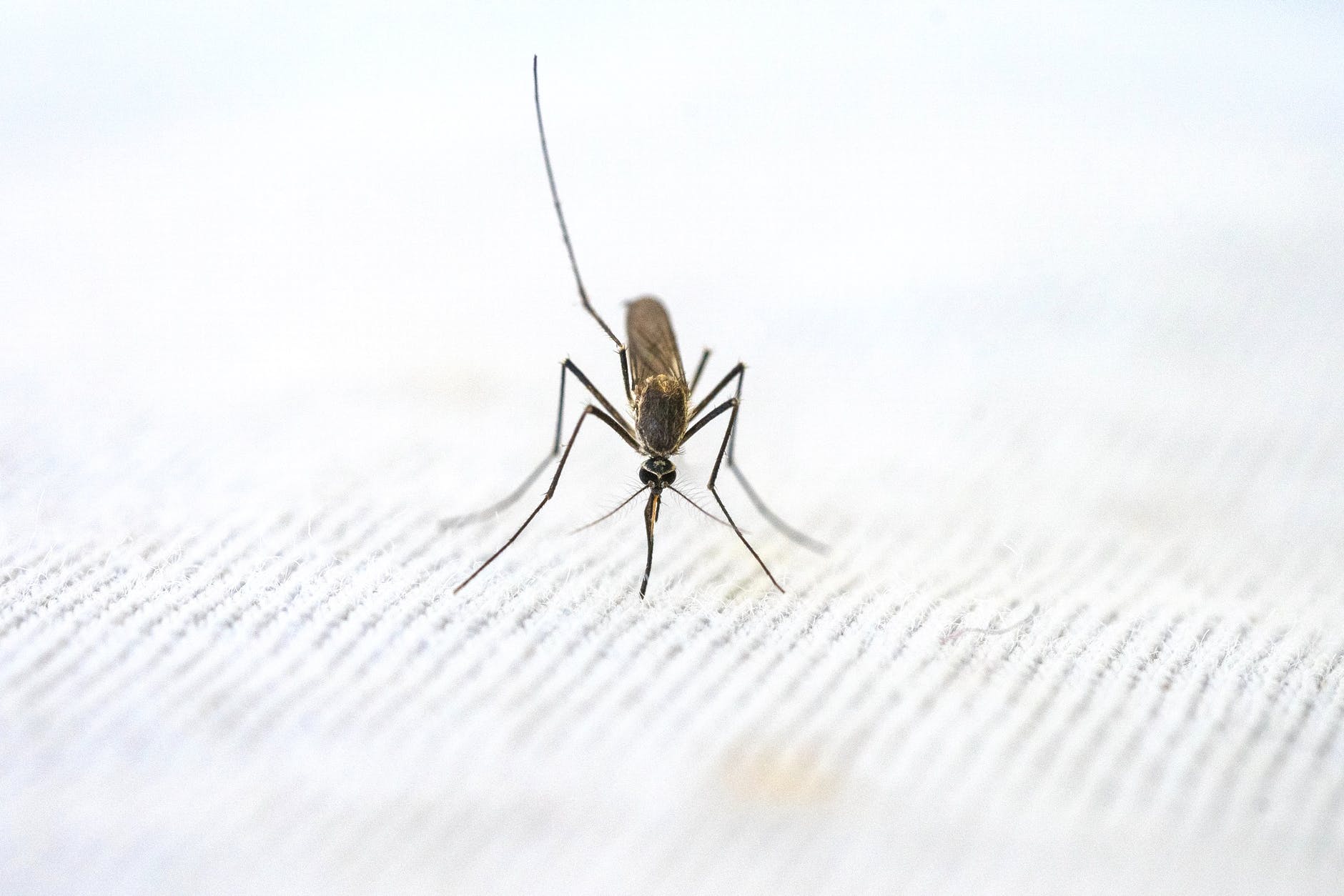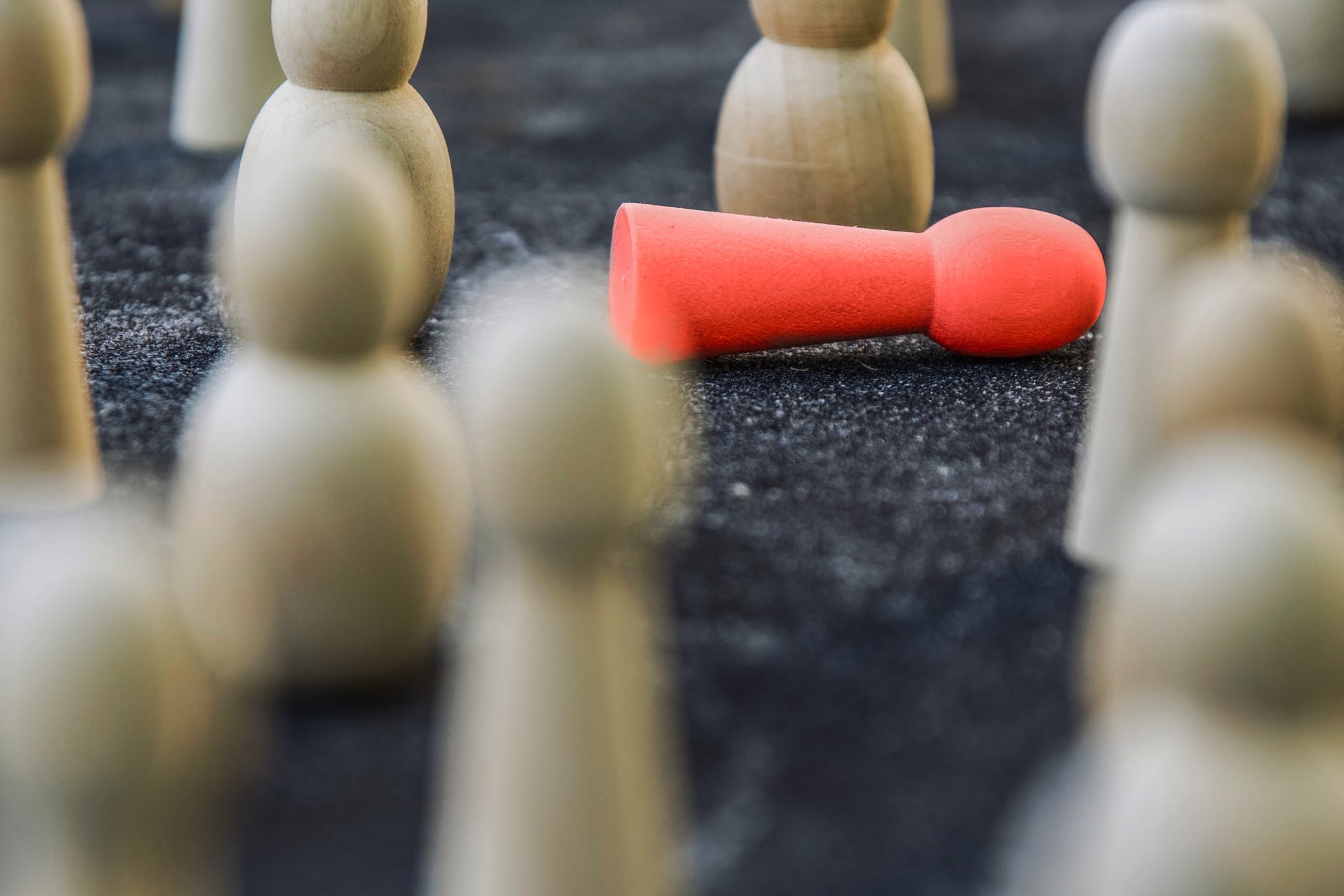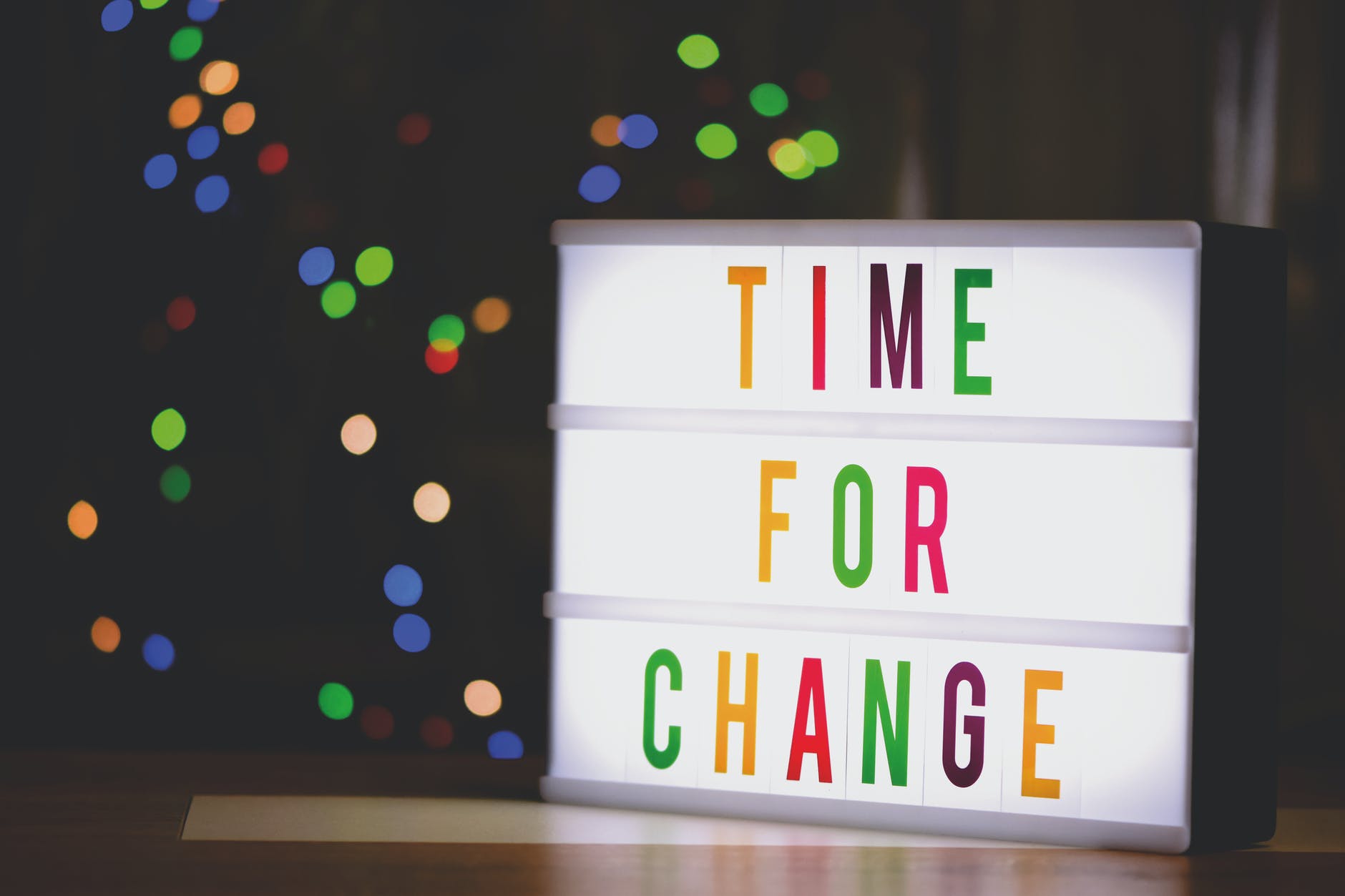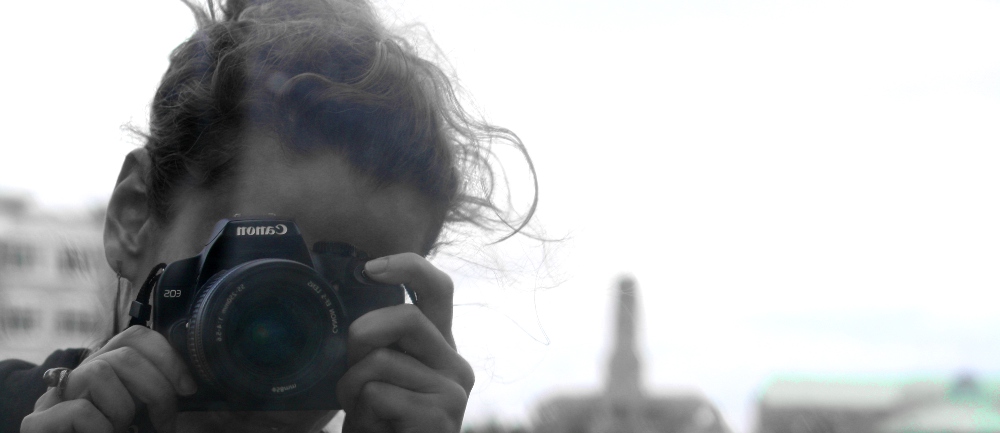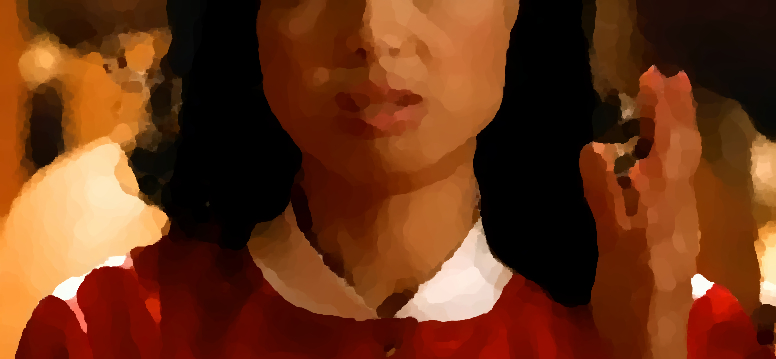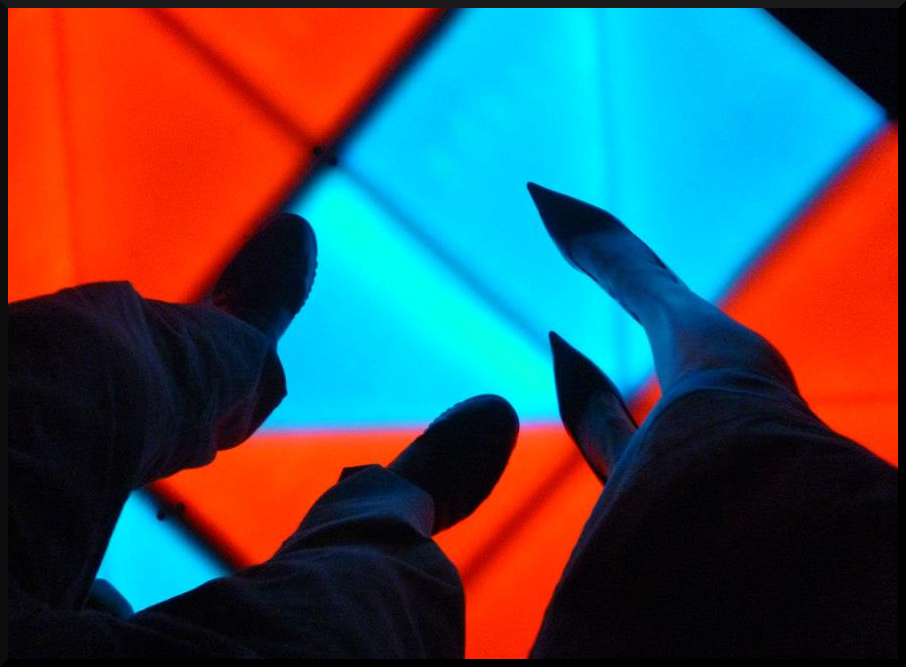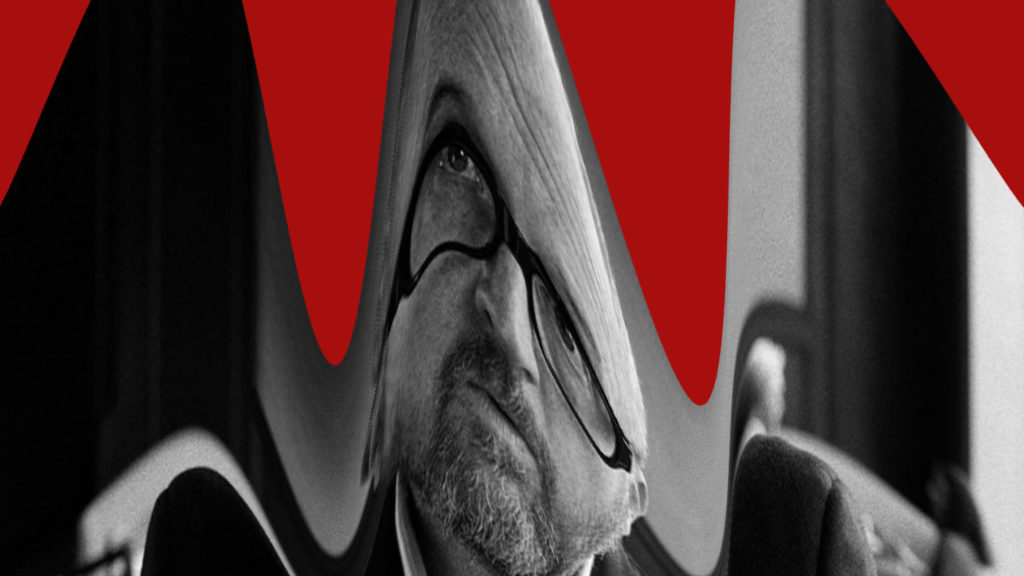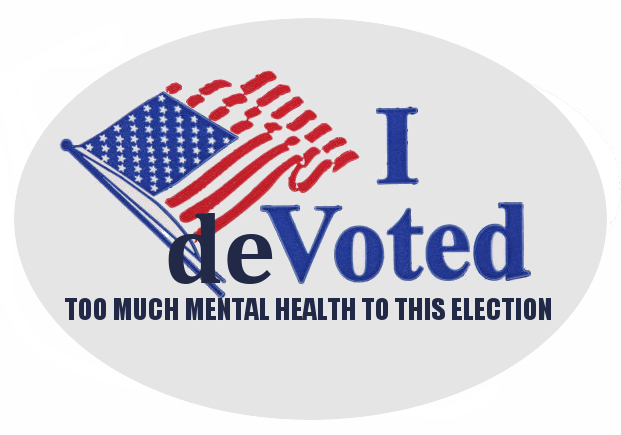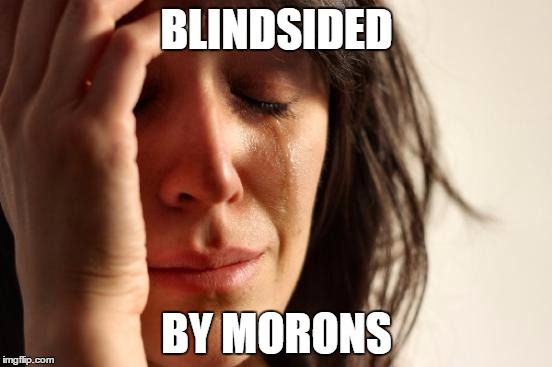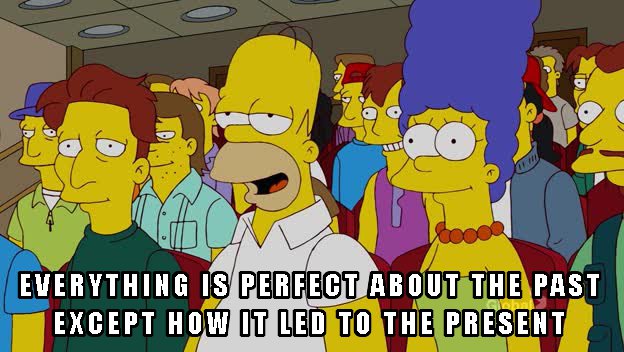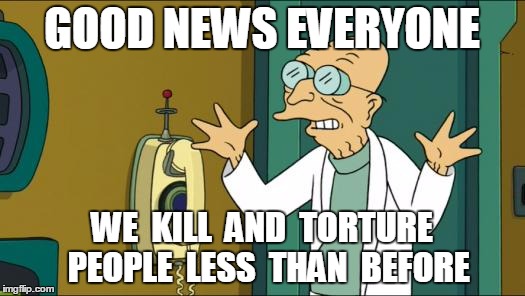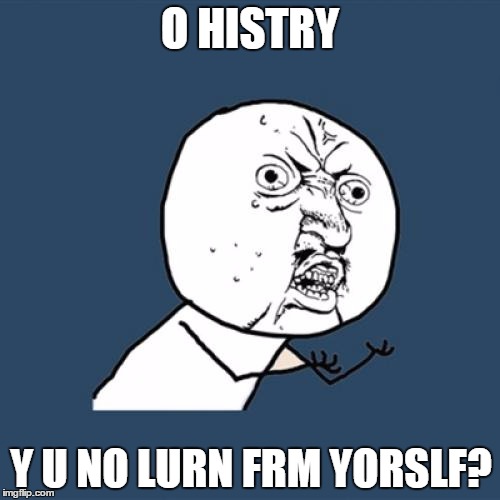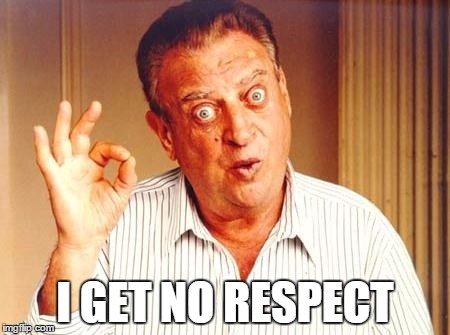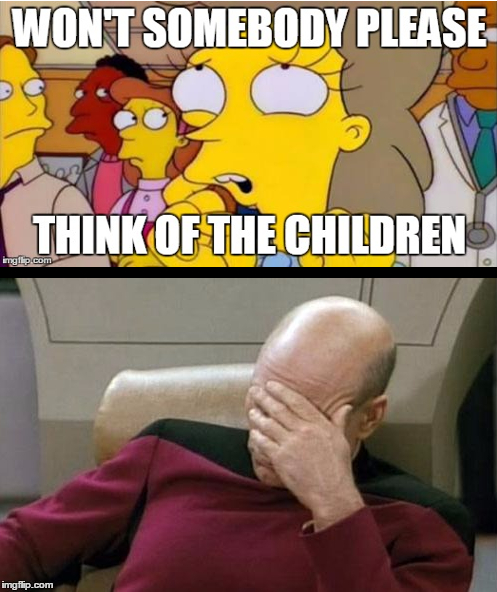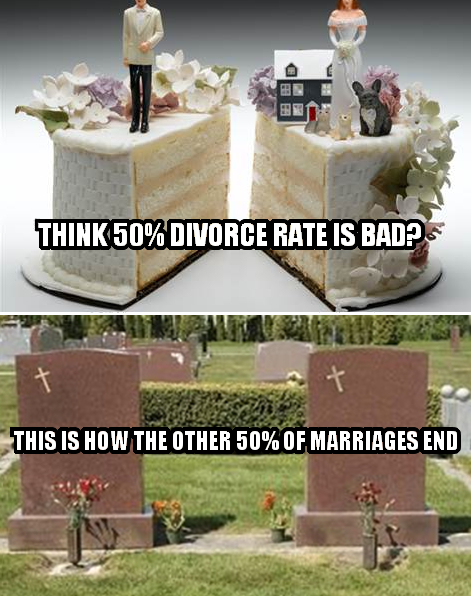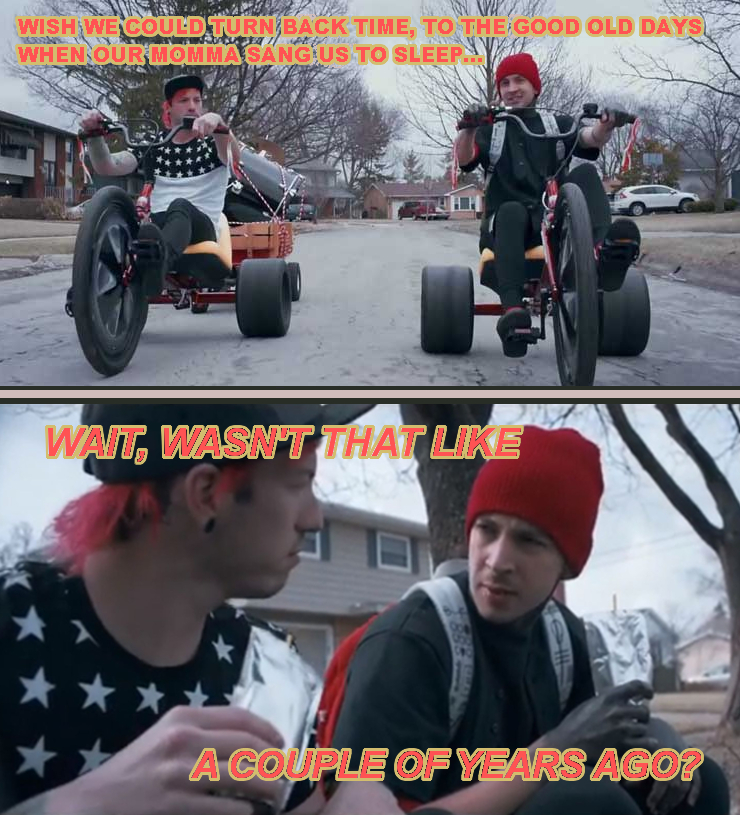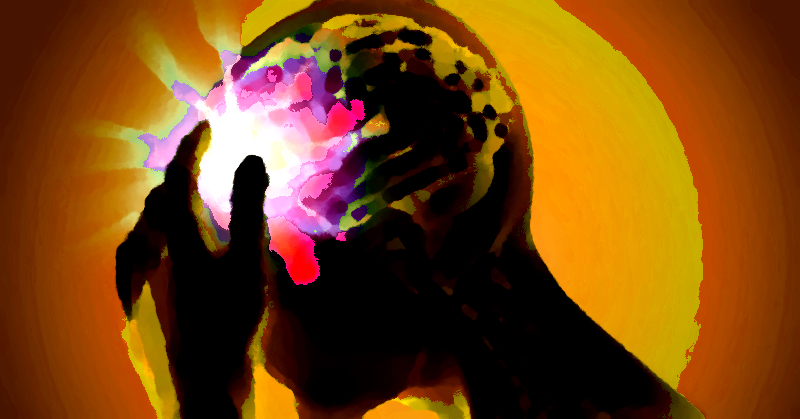
When I was a child, I wished for one superpower. Magically and instantaneously, I would be able to make other individuals experience my migraine. Just for, like, five minutes — and then I would take it right back, promise! I was sure that those five minutes would give anyone a sufficient taste of what hellfire inside one’s brain and eyeballs feels like, so that they would never, EVER be cruel to people with migraines again.
I made a stern oath to myself that I would not abuse my power and only unleash it on meanies who actively taunted others in pain and needed a lesson in compassion. Granted, that was a lot of people… But it would be a win-win for all involved: my targets would benefit from the humbling experience of learning what real pain felt like and I would get a tiny bit of satisfaction in seeing empathy advance in the world. Also, presumably, those people would stop bullying me over my migraines and let me suffer in peace. Those were my fantasies in grade school.
Alas, despite wishing super extra hard, I never manifested the ability to will others to learn compassion (this dream went out the window right alongside my childhood conviction that learning to fly is only a matter of practice…)
As an adult consolation prize of sorts, I did develop the much less miraculous skill to critically analyze and discuss migraines as a sociological phenomenon. That is: to see migraines not just as my personal hell but as a serious medical condition afflicting many, many others that is overlooked by social policy, understudied in pharmaceutical research and given a bad reputation in public opinion.
As such, it has become plainly obvious to me that the social hostility and lack of support surrounding migraines is more pervasive and more debilitating than most people realize. Anyone suffering from chronic migraines will tell you that, in addition to the punishing physical agony, there is also the crushing indignity of having to convince others that it is, indeed, real pain and it does, actually, hurt real bad.
So, I want to talk about migraine stigma. But not just as a victim of it. Between bearing the actual pain and facing endless scrutiny and ridicule about it, migraine sufferers pick up advanced physical and mental sensibilities and coping skills they might not even be aware of — and this needs to be acknowledged.
To contextualize my personal experiences, I asked Dr. Joanna Kempner, the author of Not Tonight: Migraine and the Politics of Gender and Health (Public Library), a major authority on the sociology of migraines and a fellow migraine sufferer herself, to comment on my observations and to fill in the socio-historical gaps.
Observation #1: Social Stigma toward Migraines Adds Huge Insult to Injury
I developed migraines at the age of five and, despite my best efforts, they have been with me ever since. I have a very intense memory of my first migraine too. It was at a summer rental at the countryside, where I stayed with my Grandma and Mom. I remember being overcome by crippling pain but it was so new and overwhelming that I could not pinpoint or articulate its location at all. I recall my Mom looking very worried gently shaking me by the shoulders, repeatedly asking what’s wrong. I didn’t know. My entire being was engulfed in a kind of agony I didn’t have words for. I just kept screaming “My soul hurts!!!!! My soul is on fire!!!!” over and over to the complete shock and confusion of the adults.
Months later, with the help of sympathetic doctors, my condition was diagnosed as migraines. I was extremely fortunate that, from the start, my immediate family were very supportive and did all they could to help and comfort me. But the rest of society was not understanding in the slightest. And I am not just talking about school bullying, which was substantial and came not only from students but from teachers as well…
In the Soviet Union where I spent my childhood, there existed a pervasive belief that migraines are the imagined disease of the disgraced aristocracy. The proletarian folk wisdom held it that fancy nobility invented and faked migraines in order to lie around, do nothing, get out of confrontations and just be melodramatic about themselves. There was even a little rhyme about it in Russian, “Мигрень — работать лень,” which translates to “Migraine: too lazy to work”. I heard this little ditty more than a few times before I was old enough to even know what “work” means. I still vividly recall the sweaty pig-like face of a far-removed adult relative gleefully chanting those words in my face. I just kept on massaging my temples and pictured my superpower kicking in right about now.
When I told Dr. Kempner of this experience, she wistfully reassured me that the United States has a similar history of connecting migraines with the truancy of the privileged classes. “Since the 18th century, migraines have been associated with the intelligencia and with upper-class people who use their mind too much,” she told me, “And people who have sensitive nervous systems.”
Isn’t it interesting that migraines is one of those health disorders that people link with specific “personality trait” stereotypes? Migraines have been, basically, seen as the “lifestyle disorder” of “bluebloods” and “eggheads”, i.e. highly privileged individuals with weak nervous constitutions who could afford this whole “taking the day off to curl up in a dark quiet room with a migraine” shtick. A simple online search for “athletes with migraines” ought to dispel these stereotypes in a pinch.
But the migraine stigma does not stop at the misguided conflation of psychological and socio-economic myths. It goes on to sexist delegitimation. Human females are afflicted by migraines disproportionately more than males, making up approximately three quarters of the migraine-affected population. And, historically, women’s aches and pains have been given lower priority compared with male-centered medical conditions. Just as the “mysteries” of feminine pleasure go “unsolved” while erectile dysfunction gets all the attention, funding and insurance coverage, so have women’s ailments been historically under-researched, misdiagnosed and half-treated.
So, it is “on brand”, so to speak, that women’s complaints and descriptions of their brutal migraine symptoms have been questioned and re-interpreted by the medical community and dismissed by regular folks. In my experience, patriarchal reasoning behind the delegitimation of migraines in women goes along the lines of:
- Women are dramatic about everything, so why not ignore migraines along with all their other overblown imaginary problems? (Amirite ladies?)
- Women are ‘designed’ for pain (because childbirth!) so, you know, tough nooogies, God’s will, deal with it. And since they have to suffer anyways, they should make sure to do it lady-like: modestly and discretely. Actually, make that silently.
Dr. Kempner’s research shows that sexism plays a large part in the stigma toward migraines, as male migraine sufferers have been socially ascribed much more favorable character stereotypes than their female counterparts:
“For a long time, for men, [migraine] was associated with people who work too hard and are stressed. But for women, when they have migraines, the discussion was different. Women who had migraines were thought to be using their minds — but using their minds wrongly. Women were thought to have a lower capacity to use their minds and were [considered] more prone to things like hysteria and so forth.
By the mid-20th century, any physiological explanation of the migraine has disappeared. And, in its stead, what we got was a very strong argument that migraine was associated with personality characteristics. Men and women with migraines were thought to have a type-A personality. For men, it was all about being a very hard worker who never took breaks and who stressed a lot about being the breadwinner. And for women in the 1950’s it was about worrying too much about being a homemaker.”
To spell out the double standard: a man’s [paid] work stress was serious business, therefore the migraines brought on by that stress were accepted as serious business; in contrast, a woman’s [unpaid] housewife duties were considered uncomplicated and manageable, so any stress she incurred in life was seen as easily fixable and probably preventable in the first place. That is, if she didn’t worry her pretty little head so much over silly and inconsequential housewife crap.
“And you can see that reflected in some of the old pharmaceutical advertisements about migraines, where you always have these white women who are really well-dressed and their make-up is perfect and they look like they are from an upper-middle class family; and when they are in pain, they are usually depicted as not being able to take care of their children or not being able to do their white-collar work. And when they take a pill, the pain magically goes away and they can return to whatever nurturing position it is they are supposed to go back to, or they can return to their heterosexual partner. It’s a really common trope in headache advertisements.”
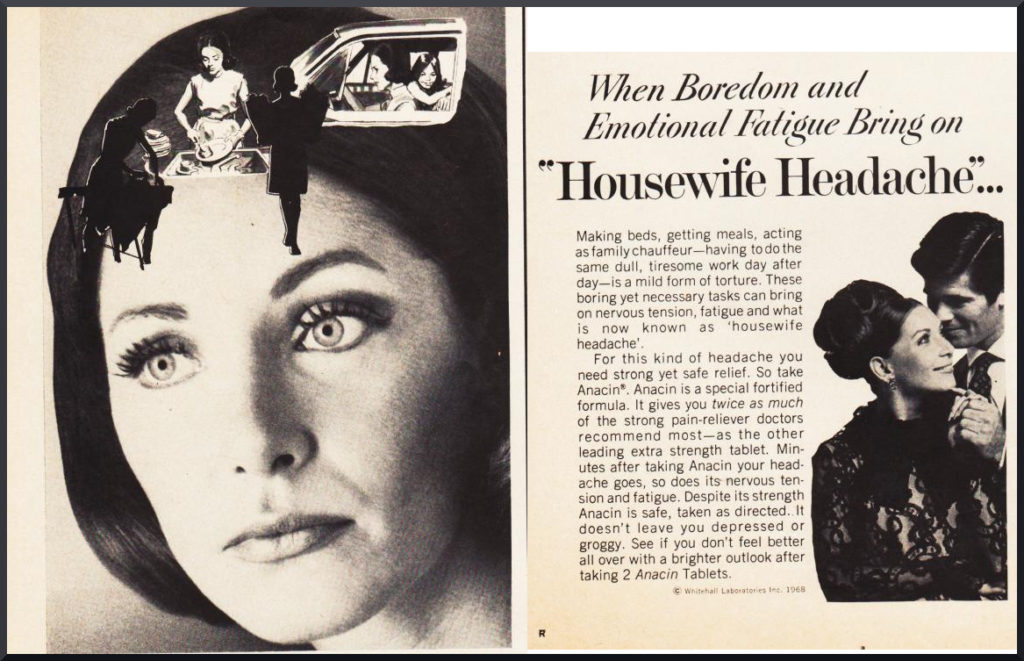
Anacin Ad: 1968 Ted Bates Agency © Whitehall Laboratories
To put it in modern terms: migraines are socially perceived as a “first world problem” affecting “one-percenter” types. For the amount of annoyed eyerolls you get for complaining about migraine pain, you might as well pen an angry editorial in the New York Post lamenting the lack of same-day Keurig pod delivery. Being viewed as a “hysterical female” compounds the problem of not being taken seriously exponentially. The general attitude, as the following medicine ad suggests, has been: just take a pill already and quit playing the victim!

Thomas Beecham’s [laxative] Pills ad from 1893
Additionally, Dr. Kempner says, migraines have made their way into popular humor: “It’s like a punchline to a joke: it’s all about avoidance of sex, avoidance of duties. And so, it’s really easy not to take migraine seriously. It’s really easy, even though we have all kinds of evidence that migraine is neurobiological, genetic and, for all intents and purposes, real.”
Speaking of medical science… Migraine studies only picked up when pharmaceutical companies realized that major moolah can be squeezed out of the sufferers. But, as far as I’m concerned, that did not so much precipitate medical gender equality as it brought on aggressive drug ads hounding us through multiple media platforms (I’ve been getting the sense that if I don’t give in to Botox soon, it might jump me in a dark alley…)
When it comes to the advancement of the medical understanding of migraines, Dr. Kempner calls the pharmaceutical industry a “mixed blessing”. She notes that the National Institute of Health (NIH) systematically under-funds migraine research relative to its burden with a mere $20 million allocation, while the pharmaceutical industry invests significantly more than that into migraine studies. But then, pharmaceutical funding is much less transparent and trackable than federal funding and is primarily beholden to corporate interests. And that means that patients are not the top priority.
“[This is] because the pharmaceutical industry is in the business of creating novel drugs, not necessarily in the business of expanding access to more populations,” explains Dr. Kempner, “And one of the things that we know about headache medicine is that many patients are grossly under-served.” At the end of the day, according to Dr. Kempner, only 4.5 percent (!!!) of patients with chronic migraines are receiving appropriate treatment. And, in clinical studies, 50 percent of patients treated see up to 50 percent reduction in their chronic migraines. In other words, the absolute best case scenario for migraine patients for the time being is to cut their episodes down by half — and to continue living with the other half. That’s the abysmal “gold standard” of migraine treatment success, as Dr. Kempner mournfully put it.
“So what’s the hold up???” I asked, grinding my teeth in frustration. Part of the problem, Dr. Kempner suggests, is that migraine education for physicians is poor and that migraine is a very low-status diagnosis because the federal funding is minimal. Simply put, there is not a lot of money in headache medicine.
But it’s not all about the dividends. “It has a lot to do with stigma associated with headache patients,” says Dr. Kempner, “Physicians don’t want to treat headache patients. I have heard so many doctors tell me that people with migraine were whiny and neurotic. [They say:] ‘They never die, they just pile up in your office and you can’t give them anything to treat them.'”
Ouch!! How hypocritically un-Hippocratic.
I hadn’t thought about it before but I can see how migraine sufferers could make for a frustrating type of patient, precisely because of the above-mentioned tepid and anticlimactic success outcomes. I imagine doctors feel accomplishment from curing patients or at least helping them improve their condition. But migraine sufferers — we just keep coming back saying that things are the same or worse. We ourselves would prefer to return with better news, but still, our existence challenges the God complex in some medical professionals, which explains the lack of enthusiasm.
So, how bad is migraine stigma, really? The answer from Dr. Kempner indicated that things were even worse than I assumed:
“From what we know about migraine and stigma, migraine is highly stigmatized… People with chronic migraines report feeling stigmatized at levels much greater than people with epilepsy. And that’s remarkable because epilepsy, at least in the sociological literature, had always been held up as one of the considerably more stigmatized diseases: epilepsy has been understood as a disease of possession and sin!”
Now, it can be fairly pointed out that just because people report feeling stigma, it does not mean that they are objectively being stigmatized. However, in this case, there is ample evidence that migraine stigma (much like the pain itself) is not a figment of imagination. For instance, Dr. Kempner brought up research by Robert E. Shapiro, MD, PhD, which demonstrated that many people do indeed think less of migraine sufferers and, consequently, treat them differently. Culturally perpetuated negative stereotypes about migraines permeate people’s psyches and turn into a preconceived bias.
Observation #2: Talk of Migraines Puts People Off
In my experience, talking about migraines in public settings is, if not outright taboo, then at least highly socially discouraged. Nothing clears a room faster than the mention of severe chronic pain or dire illness, not even talking about death. At least death is ineffable and carries all kinds of mystery, drama and finality with it. Active suffering from recurring pain, on the other hand, is a topic that summons much less romantic imagery (ghastly moans, bodily fluids, bad smells, medical bills, etc.) and makes most Americans uncomfortable as hell. It is ironic that a low-status ailment like migraines that has a reputation for being fake and all-around “not a big deal” would be so off-putting to people, when you start describing it in detail. The uneasy reactions have their own sociological logic, though.
For one, other people’s pain and illness reminds us of our own fragility and mortality and not everyone is a fan of these reality checks. In his book Modernity and Self-Identity: Self and Society in the Late Modern Age (Public Library), sociologist Anthony Giddens wrote at length about how modern western society coddles our false sense of security. He called it “sequestration of experience”: the institutional separation of daily life from social experiences that may shatter the veneer of “ok-ness” and summon anxiety.
When we witness sickness, mental illness, criminality, sexuality and death, we are reminded of all the awful and scary things that could happen to us at any time. And being confronted with the uncertainties of life gives modern westerners major existential dread. So, in today’s “civilized” world, all of these offensive and threatening things are forced behind closed doors: into hospitals, asylums, penitentiaries, bedrooms and funeral homes, so that the rest of us don’t have to cope with the traumatic realities of human nature. Predictably, the more we isolate and distance ourselves from these events and conditions, the less we are prepared to handle them when they are [inevitably] thrust into our lives. As such, we resent whomever is responsible for exposing us to them. And that includes hating on people who complain about chronic suffering.
And then, the sense of ineffectualness and helplessness is another culprit. When faced with things they can’t control — like someone else’s pain — there are people who feel so awkward for not being able to offer a solution, they want to flee; others feel so powerless that they get annoyed and angry with the migraine sufferer, basically, for not having a more “fixable” defect (much like the above-mentioned doctors…)
It is also true that there are plenty of earnestly sympathetic people who simply don’t know how to properly respond to others’ pain, as they have no tangible experience with it. Personally, I announce my condition whenever it feels relevant but, according to Dr. Kempner, the majority of migraine sufferers are quite cautious about discussing their ailment with others as they frequently encounter unsolicited advice that is of no help but serves as a tiresome reminder of how misunderstood migraines are:
“When people hear that somebody is in chronic discomfort, they make suggestions that are sort of well-intentioned but also reveal a kind of ignorance. I don’t think it’s meant to be flippant, but it feels flippant when somebody who just learned about this very serious disabling problem that you’ve been dealing with for a very long time thinks that they can help you with a suggestion that they just thought of off the top of their head. And it adds to this sense that people believe that chronic illness, especially chronic pain, are easy to fix. It’s frustrating, it makes you feel like these people have absolutely no idea what your life is like, what it’s like to be in pain.”
Against the backdrop of dismissive and tonedeaf reactions, I must say, it makes me appreciate the people who have been helpful and empathetic about my migraines even more. We chronic pain sufferers sometimes forget that it takes courage, endurance, wisdom and resilience to be the person standing next to someone in nightmarish agony. It’s not easy to bear witness to suffering and it’s even harder to know the right thing to say and do to provide the best support. Let’s take a moment to recognize the people in our lives that are there for us and our friggin’ migraines!
Observation #3: Surviving and Functioning with Chronic Migraines Makes You a Badass
Like I said, I’ve never been shy about talking about my migraines. I have a lifetime of preparation for all the indifference, ignorance and hostility this topic can provoke, but to me, people’s reactions to pain are valuable as a litmus test of sorts. If I mention my migraines and the person’s eyes glaze over, we’re pretty much done here, as far as my interest in this individual is concerned. If they can’t spare an iota of empathy for a stranger’s pain, I’ll pass on them and their problems. I learned this way back in my childhood and it has served me better than most rules of thumb when sorting the good from the bad, the worthy from the empty.
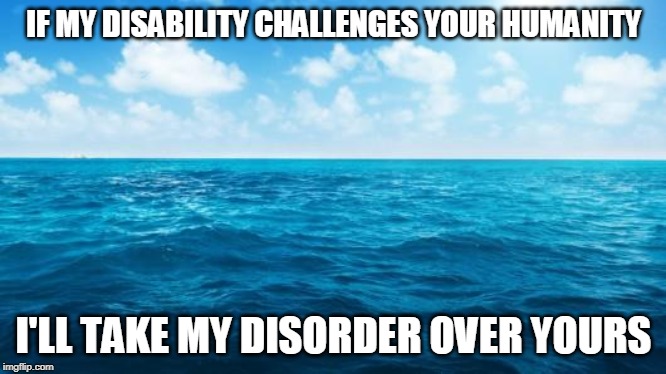
And this brings me back to superpowers.
I never did get my wish to transfer migraine pain to others five minutes at a time for educational purposes. However, the life-long sharing of my headspace with migraines (aka “the worst head-mate in the world”) did force me to develop some highly useful coping skills and survival strategies that do come in handy in all sorts of life situations.
Which makes them sort of like superpowers. After all, many classical comic book superheroes did not ask for their supernatural abilities but were victims of industrial accidents, animal attacks, criminal assaults and villainous scientists, with their superpowers emerging as unintended consequences. At first, the hero tends to reject the “abnormal” gifts but eventually learns to control them, grows to take advantage of them and incorporates them into self-identity. I feel that way about migraines: I did not sign up for this misery, but since this is the hand of cards I’ve been dealt, I must embrace the special skills and insights that come attached. Indeed, there is a number of heightened / sharpened senses that I have observed in myself and other migraine sufferers throughout my life. Just to name a few:
Gratitude. Suffering makes one face, accept and, in best cases, embrace one’s limitations. Disability shows us how harsh, randomly cruel and brutally unfair society can be and how astonishingly insignificant we are, as far as Mother Nature is concerned. This same understanding also makes one super thankful when the rare kindness, respect and validation do come along. People who are intimately familiar with pain know and appreciate the value of caretakers.
Furthermore, there is at least one thing I’m pretty sure all migraine sufferers never take for granted and are perpetually grateful for: the heavenly feeling of not having a migraine. We learn to appreciate non-events tuned out by most people as life’s “negative space” and there is a kind of magic to it.
Compassion for others. In my personal experience, people who have suffered an abundance of pain tend to score pretty high on the compassion-o-meter towards others. This is by no means to suggest that every migraine sufferer is a humanitarian empath (if only!…) But it does make sense that women and men who have to arrange their lives around living with regular pain are more attuned in to others’ discomforts and challenges than the [surprising number of] “I-never-get-sick” people who can be quite oblivious in this respect.
At the very least, chronic sufferers aren’t as likely to be dismissive of other people’s complaints: they know that the only thing that can possibly hurt more than pain is the denial of pain. Seriously, each time someone tells me how there’s no way migraines are that bad and it’s probably all in my head, another small piece of my heart dedicated to faith in humanity atrophies off (good thing migraines taught me compassion, otherwise that space would be filling up with anger and vengefulness…)
A different relationship with what “feeling good” means. One bitter truth migraine sufferers learn is that there is actually no limit to how “bad” a headache can get: just when you think it cannot get any worse, it does. But that is precisely why, in contrast, being pain-free feels downright euphoric. For chronic migraine sufferers being “not in pain” is a temporary state and we know that it’s just a matter of time before the infernal fireball that burns with the power of a thousand quasars moves back into our heads. Hence, we are quite mindful and appreciative of the physical sensation of the absence of pain.
As I see it, it doesn’t matter what cool recreational drugs you’ve taken, you will never know the true meaning of BLISS until you’ve been in excruciating pain and then, it was gone. Frame of reference is everything: it takes plumbing the depths of sadness to know what genuine happiness feels like and it takes getting a taste of agony to truly appreciate how amazing “good” feels.
Oscar-worthy performances of “OK-ness”. Not at all surprisingly, migraine sufferers are also expert actors, at least when it comes to putting on a social facade of “wellness”. This comes not from disingenuousness but from the necessity to protect oneself. Society may be unapologetically indifferent to your pain, but don’t dare display it in public: suddenly, the cruel world clutches its pearls and faints from overexposure to realness.
So, to spare everyone the bother and ourselves the fallout, we untangle our convulsed bodies, iron out the twitches in our faces, put on extra nice duds and refreshing make-up and spend the day convincingly acting out “healthiness” and “effortlessness” for all y’all. Failure to do so carries unspoken punishments that threaten our careers, relationships and reputations. And so, the show must go on — and we kill it.
A higher threshold / endurance for pain. To clarify upfront: people with migraines experience pain just as intensely as everyone else. But I believe they are more accustomed to having to function in torment for long stretches of time, which requires superior stamina / acceptance of pain.
Most people, when they feel like they’re about to drop dead from something hurting, stop what they are doing and tend to their immediate needs. Which is a healthy reflex that should be encouraged. However, if chronic migraine sufferers quit each time it felt like they were about to give up the ghost, waaaay fewer things would get done. People living with chronic migraines are habitually bracing themselves for prolonged and escalating agony and have adapted to regularly powering through the sensation of having their eyeballs slowly squeezed through one of those old-timey laundry wringers.
Uh, what was the upside, again? Oh, right: not sweating the small stuff, pain-wise. Few non-chronic aches feel like “real” pain to me anymore in comparison to migraines (and I say that as an injury-prone person). Is dissociating from pain a good thing, really? I don’t know, probably not. Does it make me feel like a badass pain ninja? Maybe just a little…
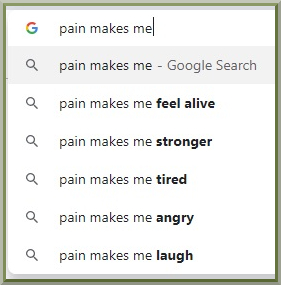
When I shared my thoughts about migraines being a superpower of sorts with Dr. Kempner, she expressed surprise at my confident outlook. It turns out that I’m in the minority of migraine sufferers who feel empowered in some way by their disability, who feel that it gives them a certain edge in this game called “life”. On the contrary, according to Dr. Kempner’s research, migraine sufferers tend to feel overwhelmed by their “abnormality” and regularly second-guess their own strength and competence:
“I actually think that a lot of people with chronic migraines underestimate how well they are doing and how well they are managing their pain. So, I’m happy to hear you say what you’re saying because that’s exactly the kind of thinking that I really strongly encourage: that we could be thinking about people with migraine in terms of what it is they are accomplishing.
Instead, I think what’s happening is that people with migraine — because there is so much internalized stigma — feel guilty about all the things they are not able to do. That becomes really burdensome. And so, I actually think you have exactly the right attitude, which is embracing your inner-hero. And I’m hopeful that more people can see themselves in that light. But… I think a lot of people find it difficult; a lot of people, deep down, are not quite understanding why they are calling out sick and having trouble taking care of the family and so forth.”
Knowing what we know, it is not shocking that people are confused and embarrassed about their migraines. But it is heartbreaking how many of us don’t realize that living with something so challenging is actually an impressive feat worthy of praise and respect.
When, as a child, I was wishing to transfer my migraines to others, I was completely certain (as I am today) that a five minute excursion into my world of unbearable “brain inferno”, when light and sound are torture instruments and vertigo and nausea keep you from knowing what’s up and what’s down — that those moments would be more than enough to set any person straight about what hardcore badass warriors migraine sufferers actually are. On the regular, we trudge through hours / days / weeks of unspeakable pain, and still operate, succeed and excel on par with non-pain-ridden individuals who couldn’t begin to fathom our struggles. If you can relate, give yourself a hearty pat on the back right now — you don’t hear it enough but you’re pretty awesome for surviving and thriving alongside “the worst head-mate in the world”.

How do I cope with migraines? ^^ I meme…
* * *
Huge thanks to Dr. Kempner for shedding some much-needed scientific light on my anecdotal observations and for finally making it click in my mind that migraines are an actual bona fide disability, medically and politically. Between lacking information and facing social judgment, so many of us afflicted have learned to think of our migraines as an aggravating obstacle to surmount, a evil curse to endure, a humiliating secret to keep hidden — as anything but a legitimate medical condition with a possible cure.
Though I just spent a lot of time painting a bleak picture of migraine mistreatment in society, the horizon is not without hope. According to Dr. Kempner, the ongoing opioid epidemic is making pharmaceutical companies shift focus to non-addictive pain medication studies, which means things could be looking up for migraine research.
And while the cure is still in the works, we can focus on ameliorating the negativity surrounding this misunderstood disorder. As much as I appreciate my migraine-begotten “special abilities”, how great would it be if migraine sufferers didn’t have to super-heroically power through acute agony while keeping a straight face for everyone else’s benefit? How amazing would it be if having a migraine was considered a rightful, institutionally and socially approved reason to take time off from work and focus on getting better? What a relief would it be to speak freely about migraines and be received with sympathy and understanding instead of dismissive contempt!
This will begin to happen only when migraines are recognized and accepted on a cultural level as a challenging pain condition that hurts way more than it shows and, yet, does not take away from the individual’s social worth or professional value. And, of course, migraines are just the tip of the iceberg. Stigma toward any and all physical and mental disabilities continues to exist despite being a medieval concept that, like other superstitions, doesn’t make any sense in the 21st century. It needs to go.
But until we get there…
*reaches for cape*
